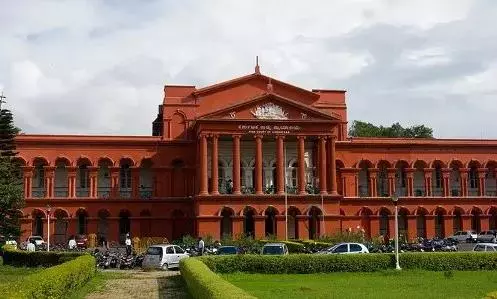
Dharmasthala case: Karnataka High Court quashes gag order on media
Harshendra had filed a civil suit in the City Civil Court alleging the broadcast of baseless and defamatory news content against the Dharmasthala Sri Manjunatha Swamy Temple and associated institutions

The Karnataka High Court has struck down the interim gag order that had been imposed on the media in connection with the Dharmasthala case. The City Civil Court in Bengaluru had previously issued the order, restraining the publication of allegedly defamatory content against D. Harshendra Kumar, the brother of D. Veerendra Heggade, the Dharmadhikari (hereditary administrator) of the Dharmasthala temple.
Also read: Dharmasthala case: SIT chief will be replaced if he goes on central govt duty, says CM
There are allegations of “mass burials” in Dharmasthala, and the Karnataka government has set up a Special Investigation Team (SIT), and it is conducting exhumation as part of its probe.
Single-judge Bench ruling
This significant ruling came from a single-judge Bench led by Justice M. Nagaprasanna, partly allowing a writ petition filed by Ajay Bin Ramakrishna Poojary, the editor-in-chief of the Mangaluru-based YouTube channel ‘Kudla Rampage’.
Also read: Dharmasthala case: SIT finds skeleton at burial site 6 in major breakthrough
Harshendra had filed a civil suit in the City Civil Court alleging the broadcast of baseless and defamatory news content against the Dharmasthala Sri Manjunatha Swamy Temple and associated institutions. He contended that even though there were no allegations against his family in an FIR filed by a sanitation worker, social media was rife with false and defamatory claims.
The City Civil Court had accepted his plea and, on July 8, issued an ex parte injunction restraining both known and unknown parties from publishing any defamatory material about him, his family, or Dharmasthala on digital, social, or print media. Challenging this broad order, the petitioner approached the High Court.
'No single statement'
While reviewing the lower court’s order, the High Court likened it to a "John Doe" order, typically used in the US against unidentified individuals, and observed that such sweeping orders must be applied with utmost caution.
The High Court noted, “The trial court’s order fails to mention even a single statement that it considers defamatory. Its scope is so expansive that it effectively threatens to subject any voice against the plaintiff, his family, or the place to judicial scrutiny.”
Accordingly, the High Court quashed the City Civil Court’s order and directed the trial court to urgently decide the interim application in the original suit. The High Court made it clear that it was not expressing any opinion on the merits of the allegations or counter-allegations in the case.
(This article was originally published in The Federal Karnataka)

